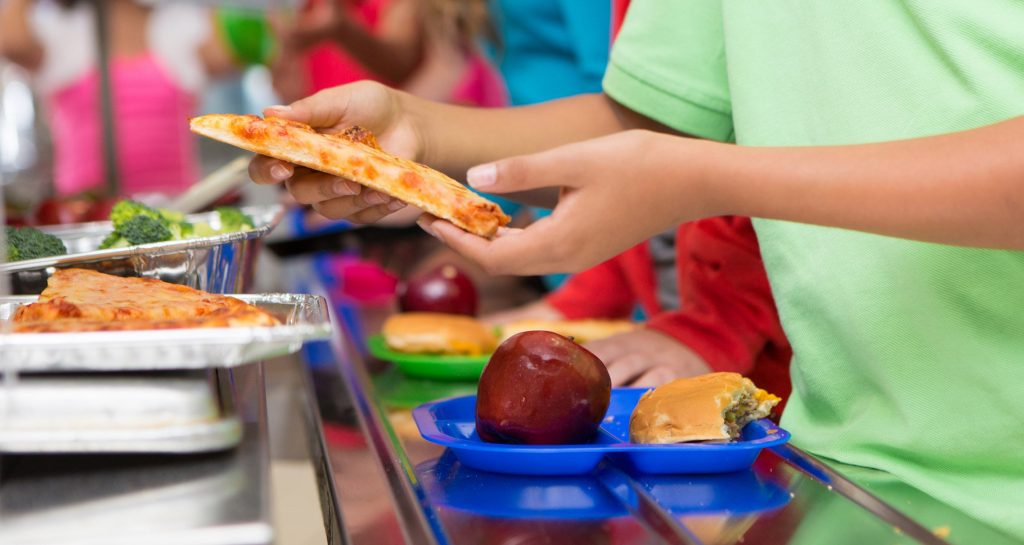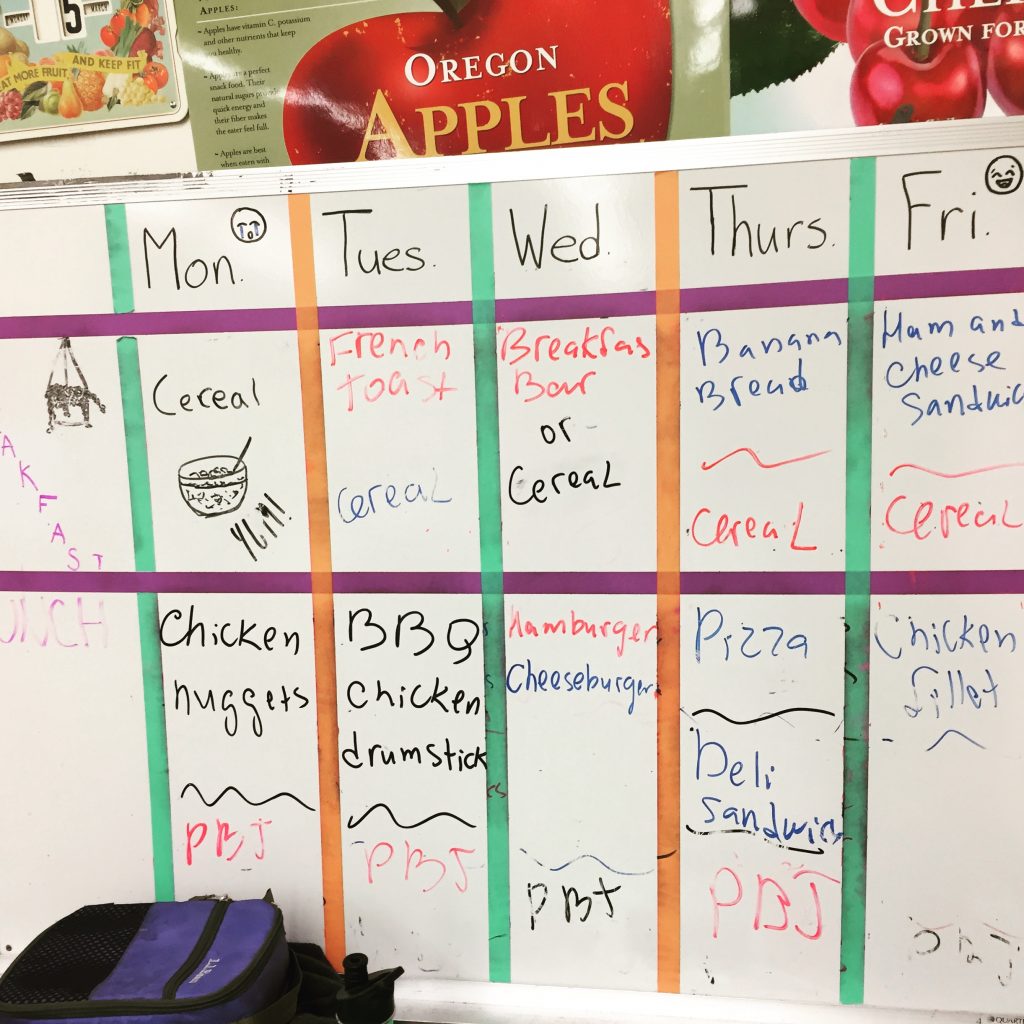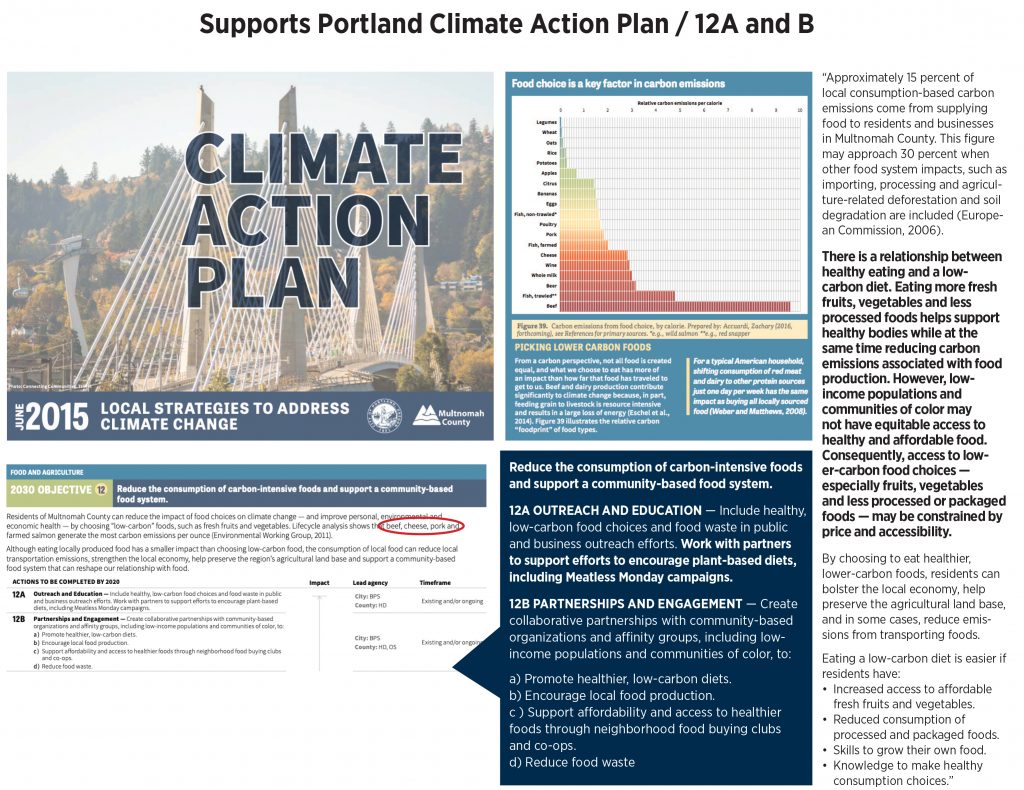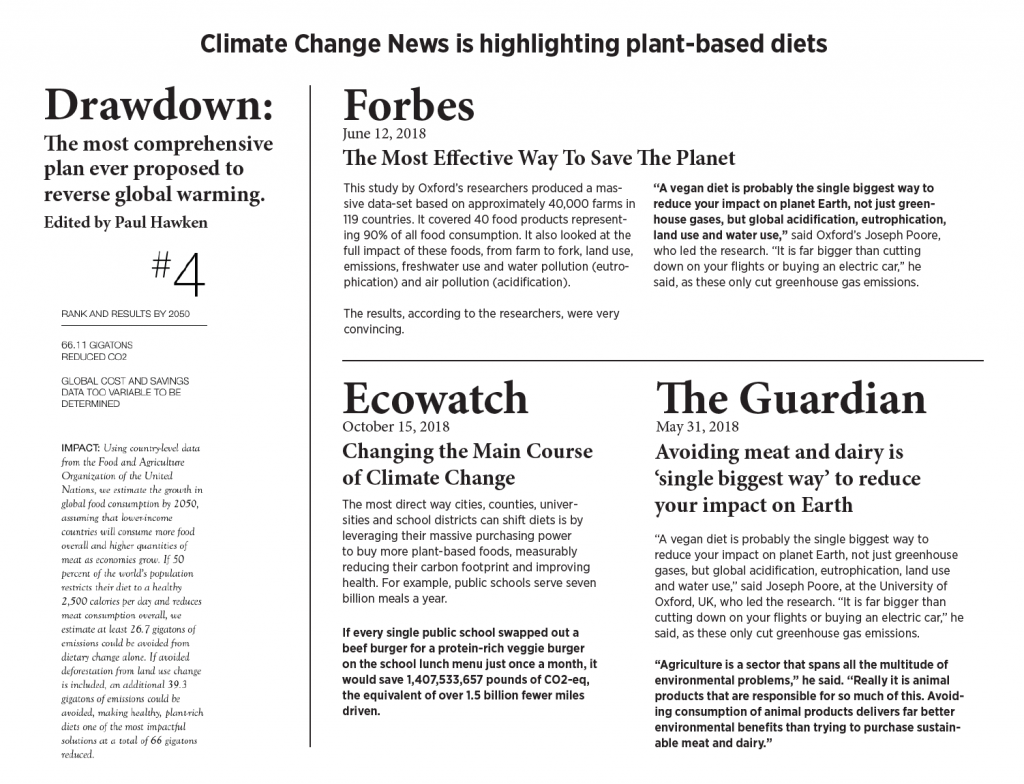Adding plant-based options to Portland Public Schools

My children became vegetarians at a young age. I have

Last year, as they were in middle school and high school, I asked them to make their own lunches. They opted instead to buy
The school lunches are decided on the district level, and it seemed a huge task to try to change the system, even as I saw that menus like this were not healthy or good for the environment or animals. The official menu that is posted on
It wasn’t until I joined

Why should we do this?
There are many reasons to change the current system: environmental, health, social equity, and animal welfare. The most obvious and irrefutable reason is that we have committed to more plant-based options as a city through Portland’s Climate Action Plan. The Climate Action Plan is a city-wide initiative to reach carbon emission reductions by 2030. Everything is clearly spelled out in 12A, B to support the addition of a plant-based option. It just needed advocates.

This was too large of an undertaking to do alone, so I looked into what local organizations might also want to be involved. I met with Katie Cantrell, Executive Director of FFAC (Factory Farming Awareness Coalition). Katie normally does presentations to schools, organizations and businesses showing the negative environmental impact that is linked to factory farming, and proposing “Green Mondays”, where a plant-based option is available once a week.
Katie introduced me to Chloë Waterman from Friends of the Earth, an international organization whose mission states “Together we speak truth to power and expose those who endanger the health of people and the planet for corporate profit. We organize to build long-term political power and campaign to change the rules of our economic and political systems that create injustice and destroy nature.”
Chloë had been to Portland and spoken with PPS Nutrition previously. She is working on some large-scale changes on the County level and is another great partner for us.
What are the benefits?
The environmental benefits are very clear and becoming much more prominent in the news, especially as eating a plant-rich diet ranks #4 on Project Drawdown’s comprehensive list of ways to lower carbon emissions.
In addition, plant-based options will create healthier meals. This is also an important social equity benefit. Students on free and reduced meals through the school district could easily be receiving the majority of their meals from PPS. If they don’t have access at home to healthier options, they could be eating the equivalent of sugary cereal and chicken nuggets every day.

Plant-rich diets reduce emissions and also tend to be healthier, leading to lower rates of chronic disease. According to a 2016 study, business-as-usual emissions could be reduced by as much as 70 percent through adopting a vegan diet and 63 percent for a vegetarian diet, which includes cheese, milk, and eggs. $1 trillion in annual health-care costs and lost productivity would be saved.” — Project Drawdown
Through the research of menus and requirements, it is shown that plant-based proteins are allowed in schools, and in fact, are implemented in many schools around the country and Canada. If we can help with the rising epidemic of obesity, heart disease
We want the items we are adding to be both healthy and delicious: think about incorporating naturally plant-based ethnic food such as falafels, curries and more that students will enjoy. There is also the possibility of simply replacing a meat burger or chicken patty with a vegan version.
How do we do this?
We already have a coalition of great organizations to help with this effort. In addition to FFAC, SAGE, and Friends of the Earth, we’re also working with national organizations: Balanced, One Meal a Day, and local environmental organization, Eco-School Network.
But we need students, parents, and the local community to support this as well.
This is not an original idea! It has been implemented at public schools around the country in California, New York, and other states. There are resources such as Coalition for Healthy School Foods with guidelines available to not only help us get the approval but also work on how we can get distribution. The main issue we face is that the government heavily subsidizes certain unhealthy foods for schools creating an unfair advantage for processed meat and dairy. We are advocating for as much local and unprocessed items as part of the climate plan. It’s possible that more parents will want to buy into the hot lunch program when it makes the changes we are proposing. This is not just for vegans or vegetarian students, it is
In conclusion, the time is finally here where the awareness of the issues around factory farming, and climate action goals are aligned, mainstream and a priority in our city. We can make this happen, together.
We’re holding our first community meeting on March 1,

